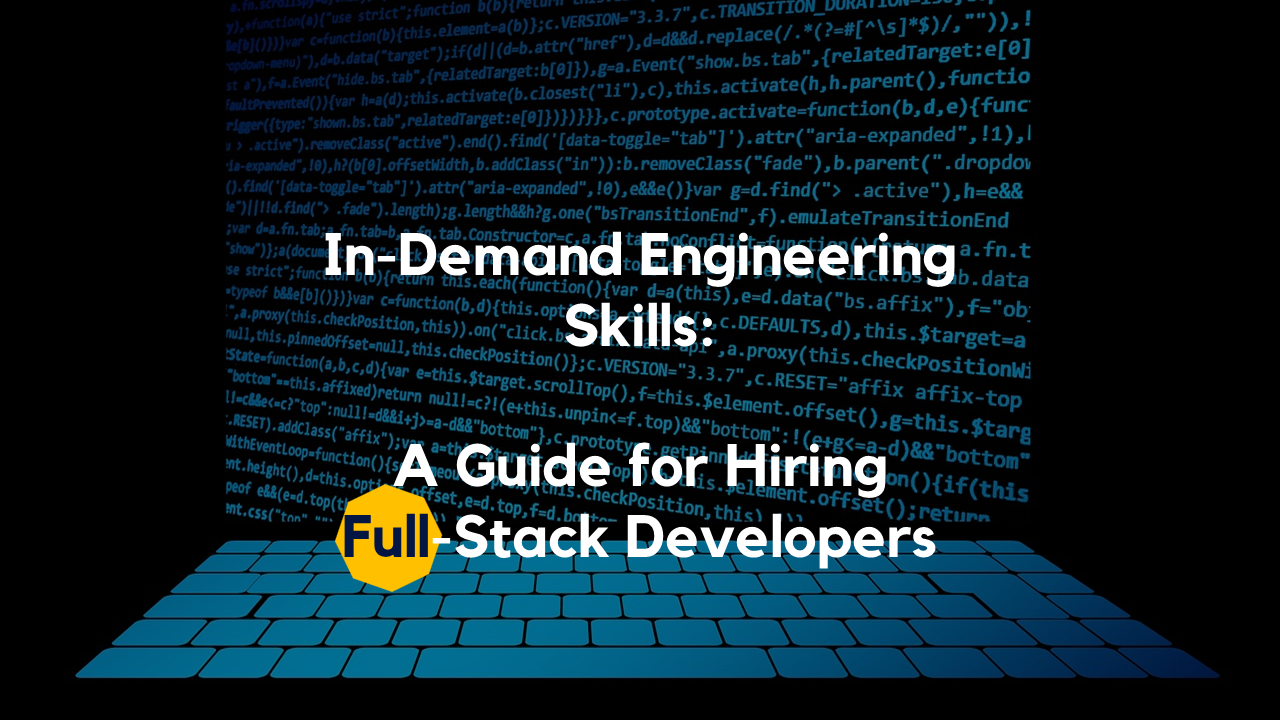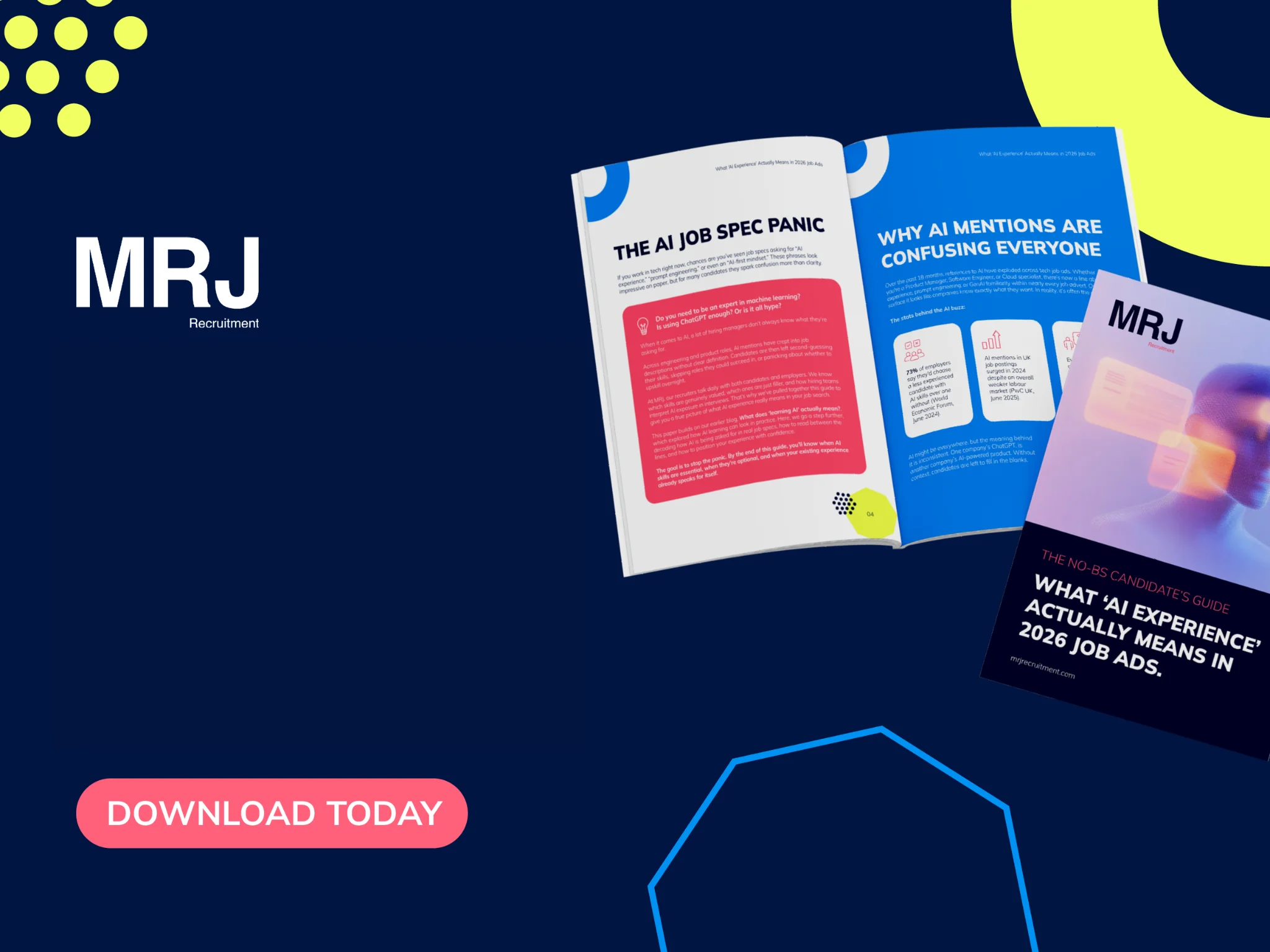In-Demand Engineering Skills: A Guide for Hiring Full-Stack Developers
01 Feb, 20244 minutesIn-Demand Engineering Skills: A Guide for Hiring Full-Stack Developers Any company with...

In-Demand Engineering Skills: A Guide for Hiring Full-Stack Developers
Any company with even a basic footing in the market knows the name of the game for Software Engineers is their tech stack and the technical/software skills they’ve spent their careers mastering.
While in some fields, it might be feasible to rely on connections and surface-level knowledge, At the heart of every Software Engineer's toolkit is the chosen tech they've chosen to learn – a combination of programming languages, frameworks, and tools that they’ll use during their IT jobs during tech projects and processes.
But what exactly are these tools? In this guide, we’ll dissect the essential basic skills and frameworks in no particular order that most Full Stack Developers use as a starting point.
**Node.js:**
Node.js has emerged as a popular choice for building scalable and high-performance web applications. It’s free, open-source server environment makes it ideal for running JavaScript code outside of a browser while also handling real-time data and building responsive applications. Full-stack developers with Node.js expertise are highly sought after, with Node and JavaScript being common combinations used to create the backend.
**.NET:**
.NET, a versatile open-source framework tool developed by Microsoft that enables developers to build a wide range of applications, from web and mobile apps to desktop and cloud-based solutions. Its scalability, extensive library of tools and frameworks and ability to work with numerous frameworks, from C#, Visual Basic, and F# make it a popular choice for enterprise-level applications.
**Java:**
Java remains a cornerstone of the software development world, known for its platform independence, security, and vast ecosystem of libraries and frameworks. With a lot of use cases for both the front-end and the back-end, Java’s to ability simplify development processes mean it’s an accessible language with lots of info & tutorials out there for people interested in learning more.
**Python:**
Python's simplicity, versatility, and extensive library support make it a favourite among Software Engineers. Its ease of learning and readability make it an excellent choice for beginners, while its powerful features and frameworks empower experienced developers to build sophisticated applications. Commonly used in web development, data science, and startups, it’s a great engineering skill for Software Devs to have in their toolkit. Python developers also are highly sought after for their ability to quickly prototype and iterate on new ideas, making them ideal for fast-paced, agile development environments.
**PHP:**
PHP's popularity stems from its simplicity & ease of use. Its extensive library of free open-source tools and frameworks makes it an ideal choice for building dynamic and interactive web applications. Noted for continually evolving through its active community that attempts to fix bugs/shortcomings mean that it’s remained in relevancy even in the face of AI threatening it.
**Go (Golang):**
Go, also known as Golang, is a relatively new programming language that has gained significant traction in recent years. Its focus on concurrency, scalability, and simplicity makes it an excellent choice for building high-performance distributed systems and microservices. Full-stack developers with Go expertise are in high demand for their ability to create efficient and scalable solutions. Steadily being adopted by big name players across the tech industry it’s increasingly becoming the tech to know.
**Conclusion:**
Hiring full-stack developers with the right skills is crucial for businesses looking to stay competitive in the digital age. By focusing on the in-demand engineering skills outlined in this guide, you can attract top talent capable of building innovative and scalable solutions that drive business success.
Remember, the key to successful hiring lies in understanding your specific requirements and aligning them with the skills and expertise of potential candidates. By conducting thorough interviews, evaluating candidates and streamlining your IT Engineering Recruitment Process, you can identify the ideal full-stack developers who will contribute to your organisation's long-term success.
*Image by Gerd Altmann from Pixabay*




